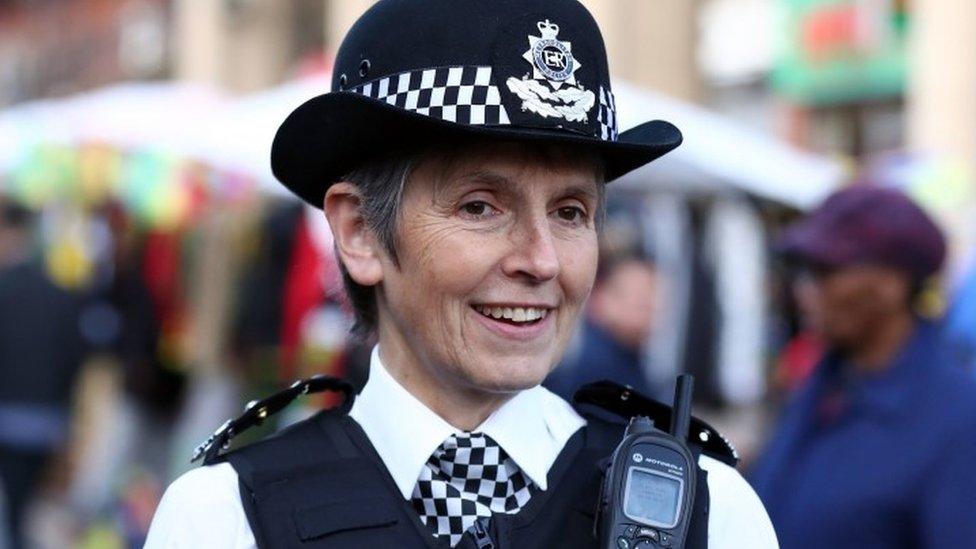Cressida Dick: Prime minister urged to replace Met Police commissioner
- Published
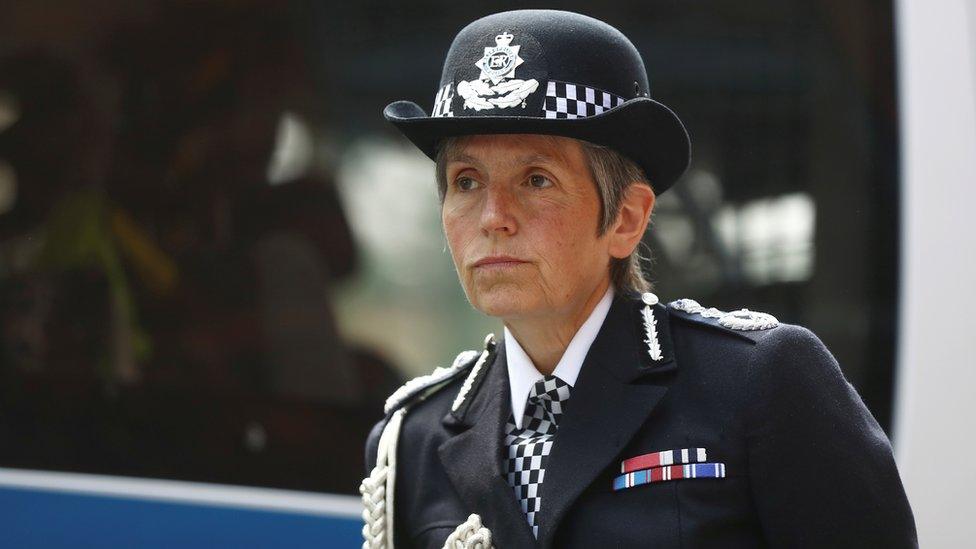
Dame Cressida Dick became the first woman to lead the Metropolitan Police when she was appointed in 2017
Victims of police injustice are calling for the prime minister to replace Met Police Commissioner Dame Cressida Dick when her contract comes to an end in April.
In an open letter, they accuse her of "presiding over a culture of incompetence and cover-up".
The BBC understands Dame Cressida, 60, has been offered a two-year extension and that negotiations are ongoing.
Since her appointment in 2017, she has been involved in several controversies.
Two of the seven who signed the letter, published in the Daily Mail, external, are Baroness Lawrence, whose son Stephen was murdered in a racist attack, external, and Lady Brittan, whose home was raided when her husband Lord Brittan was falsely accused of child abuse.
The others include Alastair Morgan, whose brother Daniel was murdered in 1987 - the killer remains unidentified and a report into the case accused the force of institutional corruption and sparked denials from the Met's leadership - and the son of D-Day Army officer Lord Bramall, who was falsely accused of child sexual abuse by the paedophile and fantasist Carl Beech.
BBC broadcaster Paul Gambaccini, who was arrested as part of Operation Yewtree, and the former Conservative MP Harvey Proctor - another victim of Beech's false allegations - are also signatories, as is Sir Edward Heath's biographer Michael McManus. The former prime minister was another public figure smeared by Beech.
Paul Gambaccini: "The Metropolitan Police have obfuscated the truth from the people of this country"
Speaking to BBC Radio 4's Woman's Hour, Mr Proctor said it was "utterly extraordinary" the government should contemplate extending Dame Cressida's tenure "even for a day, let alone two years".
He said the letter's signatories were linked by their common experiences of police malpractice over a number of years, and they had come up with no reason why the chief commissioner "who has failed and failed and failed" should be given an extension.
"There must be other chief commissioners outside of London who'd be prepared to do the job and do it a great deal better, with integrity and without cover-up after cover-up.
"I personally believe she should have resigned months ago. I'm not fighting for myself, I'm fighting for the future so that it won't happen to anyone else.
"And it could happen to someone else if changes are not made at the top of the Metropolitan Police. No-one has been held responsible for the problems Operation Midland [the Carl Beech allegations investigation] created.
"The commissioner even got a damehood - quite outrageous."
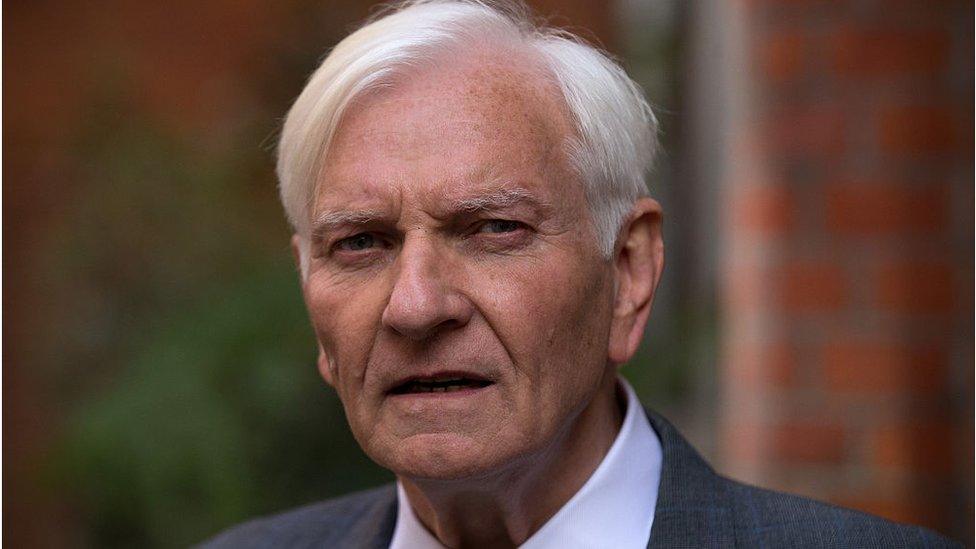
Harvey Proctor said Dame Cressida should have resigned months ago
Mr Proctor said he received an apology in person from Lord Hogan-Howe, Dame Cressida's predecessor, who was the Met's chief commissioner while Beech's allegations were treated as "credible and true", but he rejected an apology from Dame Cressida because "her words and actions did not go hand in hand".
"I call on the prime minister and the home secretary to meet with all seven of us to hear our experiences - and I would defy them then to continue with any extension of her remit."
Mr Gambaccini, who sued the Met over the way it dealt with accusations against him, said Dame Cressida postponed the case for as long as possible in what he described as "three and a half years of non-honesty".
Speaking to the BBC's Victoria Derbyshire, he also said that he and his fellow signatories "all found that the leadership of the Metropolitan Police is breathtakingly corrupt".
He accused both the chief commissioner and the force of misleading the public.

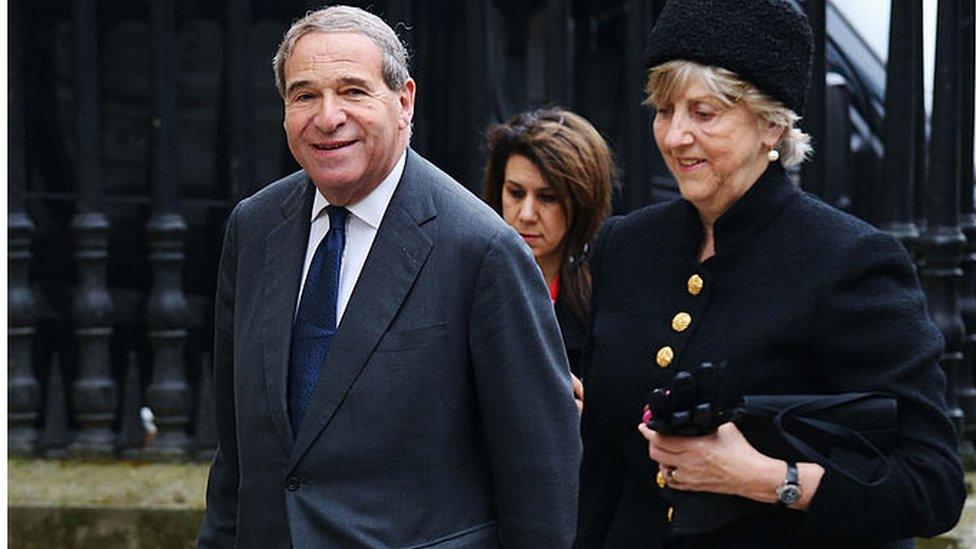
Lady Brittan, the widow of Lord Brittan, is among those calling for Dame Cressida's tenure to end
Analysis: June Kelly, Home Affairs correspondent
As the first female Met commissioner, Dame Cressida Dick was bound to be well received when she was appointed in 2017. It was the job she had always wanted and it meant a return to the force where she had spent most of her career and where she was popular with the rank and file.
Some of the criticism now being levelled at her relates to her time at Scotland Yard before she was in the top job.
In 2014 as an assistant commissioner she was in charge of the team involved in Operation Midland - the disastrous long-running inquiry into an alleged VIP paedophile ring. When Midland collapsed and the complainant, Carl Beech, was exposed as a serial liar, criticism was levelled at a number of officers including one detective who had initially described Beech's story as "credible and true".
Cressida Dick admitted that she had heard the officer say this on the radio and had done nothing to correct it.
The former MP Harvey Proctor, who lost his job and his home as a result of being falsely accused by Carl Beech, is one of the seven signatories to the letter saying that Dame Cressida must not have her contract extended. He, like the others, does not believe that over the past four years she has displayed the right characteristics to remain in the role.
Doreen, now Baroness, Lawrence is the first name on the letter. She says she is unhappy that the commissioner has closed her son's murder inquiry and, as a lifelong race campaigner, she is also concerned about the Met's use of stop and search.
The signatories were brought together by the Daily Mail, which has been calling for Cressida Dick to go.
The commissioner recently described herself as an honourable person. The question now is whether she will want to accept a two-year extension.

Mr Gambaccini also criticised the BBC for its reporting of his case, accusing it of being on the "side of wrongdoers".
He has previously described the corporation as "the worst employer in the world", alleging that no senior managers were in touch with him during his time under investigation by the Met Police. The BBC said it had no comment to make.
In February 2017, Dame Cressida became the first woman to lead London's force since its inception in 1829. Her appointment was criticised at the time by the family of Jean Charles de Menezes, who was wrongly shot dead during an operation she led in 2005.
Now Dame Cressida is coming to the end of a five-year contract, Home Secretary Priti Patel has consulted with London Mayor Sadiq Khan and Downing Street over the decision to ask her to stay on for two more years, according to media reports.
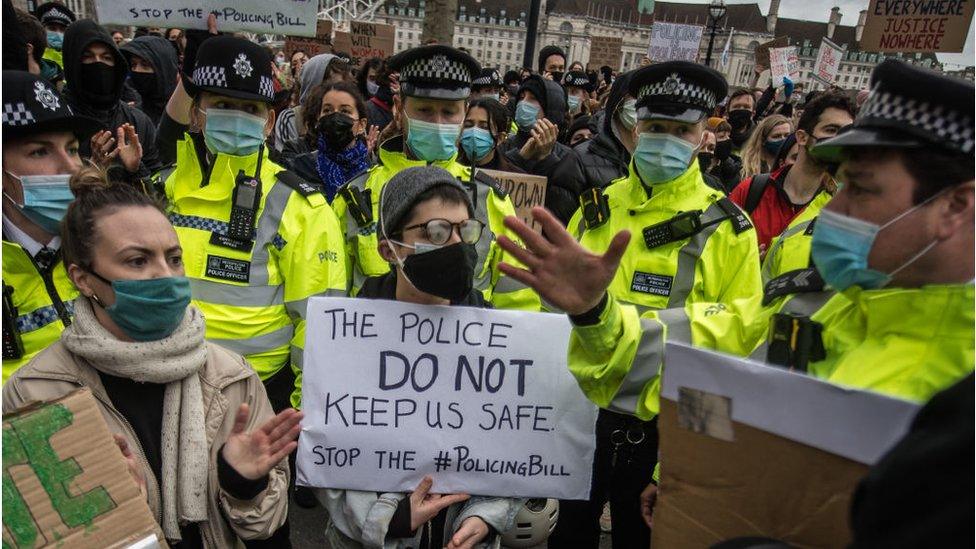
Protesters demonstrate outside Scotland Yard over the treatment of people by police at the Sarah Everard vigil
The Met commissioner resisted pressure on her to resign in March when the force came under scrutiny over the handling of a vigil held in memory of Sarah Everard, the marketing executive murdered by then-Met Police constable Wayne Couzens.
The force has faced repeated accusations of racial bias in its use of stop-and-search powers and was hit with criticism over the security of Wembley stadium during the final of the Euro 2020 championships.
Since the start of the year, both Prime Minister Boris Johnson and the home secretary have publicly backed Dame Cressida.
A Home Office spokesperson said: "The appointment of the Commissioner of the Metropolitan Police Service is a formal process which will be confirmed in the proper way."
The mayor of London and Met Police have declined to comment.
Related topics
- Published12 February 2021
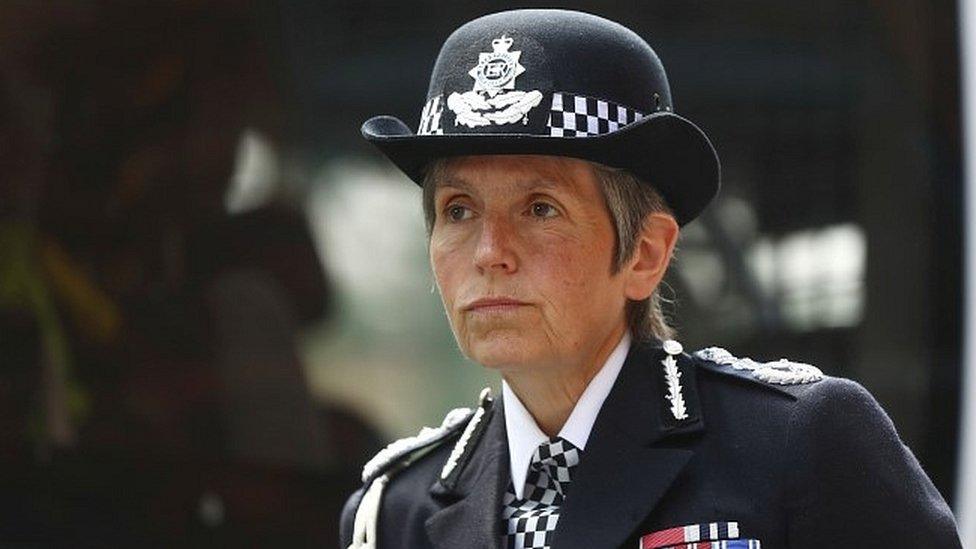
- Published1 July 2021
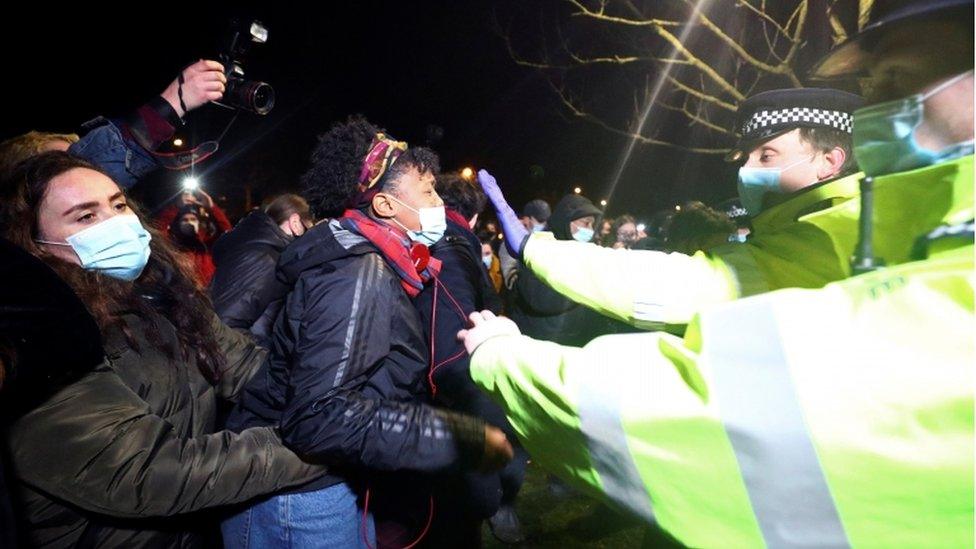
- Published10 February 2019
